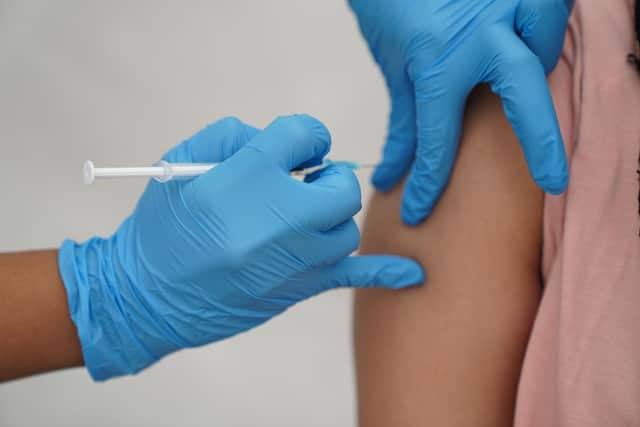Covid Scotland: One in 20 long-Covid patients not recovered after 18 months, study shows
The Scottish Government funded Long-CISS (Covid In Scotland Study) found that 5 per cent of patients assessed were still feeling the impacts of SARS-CoV-2 between six and 18 months after being infected.
The study was set up in May last year to understand the long-term impact of the virus, and to compare it with the health and wellbeing of those who had not been infected at all.
Advertisement
Hide AdAdvertisement
Hide AdA total of 33,281 people with laboratory-confirmed SARS-CoV-2 infections were matched with 62,957 never-infected individuals from the general population for the research.


Both groups had six, 12 and 18-month follow up questionnaires, with researchers able to link to hospitalisation and death records.
Overall, the study found 42 per cent of respondents infected with Covid-19 said they feel only “partially recovered” between six and 18 months following infection.
Details of each person’s partial recovery were not given in the survey, and authors of the research said the symptoms were wide-ranging, from mild to moderate, and did not necessarily result in a long-Covid diagnosis.
Reassuringly, the research found that those with asymptomatic infection who took part said they had no long-term impact; and people who had been vaccinated prior to infection with Covid-19 appeared to have protection from some long-term symptoms.
For people with long-Covid, the impact of the virus was wide-reaching, with a broad range of symptoms that affected daily life.
Overall, long-Covid symptoms were more likely following severe infections that required hospitalisation, with the most reported being breathlessness, chest pain, palpitations, and confusion, or “brain fog”, the report said.
The condition was also more likely in individuals who were older, female and those from deprived communities.
Advertisement
Hide AdAdvertisement
Hide AdAnd those with pre-existing physical and mental health problems, such as respiratory disease and depression, were also more likely to experience long-Covid.
While recovery status remained constant over the follow-up period for most participants, 13 per cent of people taking part in the survey reported improvement over time and 11 per cent reported some deterioration.
Professor Jill Pell, professor of public health at the University of Glasgow, and who is leading the ongoing research, said: “Our study is important because it adds to our understanding of long-Covid in the general population, not just in those people who need to be admitted to hospital with Covid-19.
“By comparing symptoms with those uninfected, we were able to distinguish between health problems that are due to Covid-19 and health problems that would have happened anyway.”
Dr Andrew McAuley, consultant healthcare scientist at Public Health Scotland, said: “This study provides novel and important evidence on long-Covid in Scotland.
“We know that being fully vaccinated against Covid-19 can reduce the likelihood of developing long-Covid and therefore we encourage those who are eligible for the Covid vaccine to take the opportunity to enhance their protection by getting vaccinated.”
The study was published in Nature Communications on Wednesday.
The research is being led by the University of Glasgow in collaboration with Public Health Scotland, NHS Scotland and the Universities of Aberdeen and Edinburgh, and funded by the Scottish Government Chief Scientist Office.
